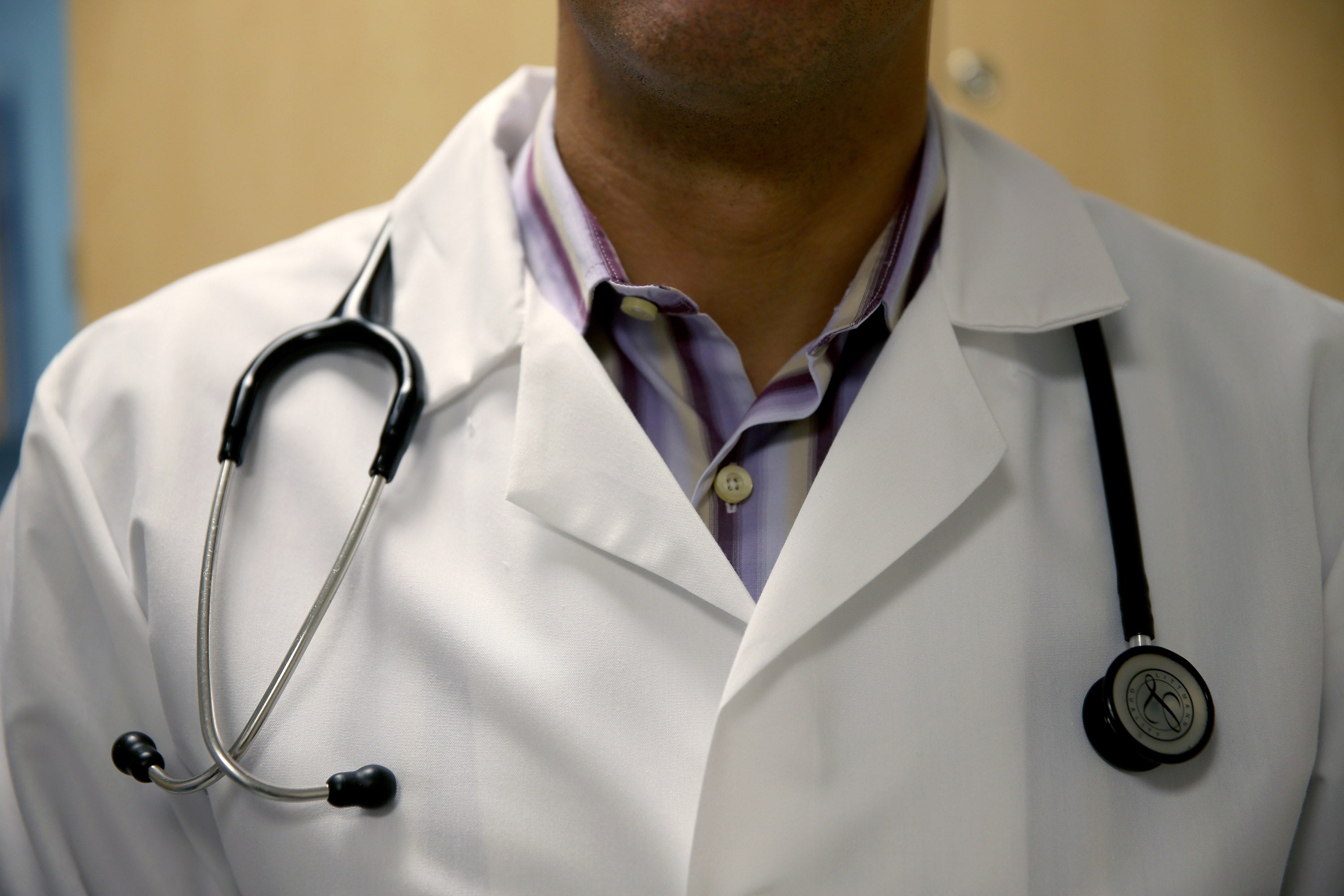50m patients will be 'turned away' from GP surgeries next year, says Royal College of General Practitioners
Lack of investment is leading to an overstretched service in crisis

Your support helps us to tell the story
From reproductive rights to climate change to Big Tech, The Independent is on the ground when the story is developing. Whether it's investigating the financials of Elon Musk's pro-Trump PAC or producing our latest documentary, 'The A Word', which shines a light on the American women fighting for reproductive rights, we know how important it is to parse out the facts from the messaging.
At such a critical moment in US history, we need reporters on the ground. Your donation allows us to keep sending journalists to speak to both sides of the story.
The Independent is trusted by Americans across the entire political spectrum. And unlike many other quality news outlets, we choose not to lock Americans out of our reporting and analysis with paywalls. We believe quality journalism should be available to everyone, paid for by those who can afford it.
Your support makes all the difference.The number of times GP surgeries will be forced to turn away patients for appointments next year could pass the 50 million mark, the Royal College of General Practitioners (RCGP) has said.
The figures, which were described by doctors' leaders as a “shocking indictment” of a failing system, indicate that one in nine people attempting to see their GP might not be able to get an appointment.
According to the numbers patients in London and Birmingham would face the most problems in getting an appointment with one in seven being turned away.
The RCGP said that lack of investment is leading to an overstretched service in crisis which is struggling to meet patient demand. The body, which represents 49,000 family doctors in the UK and overseas, called for 8,000 more GPs to help deal with the shortfall.
Considering current trends in cities across the country where patients have complained about finding it difficult to get an appointment, the RCGP has forecast figures suggesting the situation will only get worse.
In London the number of times patients are unable to speak to or see a GP or nurse is expected to rise from 9.3 million this year to 10.4 million next year.
Similar increases will be seen in areas including Birmingham, Greater Manchester, West Yorkshire and Merseyside, with this year's figures predicted to rise by hundreds of thousands.
The figures confirm the fallout from having family doctors and practice nurses conduct 90% of appointments for just 8.5% of the NHS budget in England, the RCGP said, calling for investment to be increased to 11%.
RCGP honorary treasurer Dr Helen Stokes-Lampard said the situation has reached crisis point.
"The fact that patients in England will be unable to see their GP when they want to on more than 50 million occasions in 2015 is a truly shocking indictment of the crisis that is enveloping general practice," she said.
"No GP wants to turn away a single patient - but surgeries are being faced with no choice because they don't have the resources to cope with the increasing number of older people who need complex care, whilst also meeting the needs of families and people of working age.
"The profession has been brought to its knees both by a chronic slump in investment and the fact that there are now simply not enough family doctors to go around.
Dr Stokes-Lampard said there is a concern patients who are unable to get an appointment may give up trying.
"Whilst some of these patients will try calling the practice another time to get an appointment, this isn't good enough - many will either ending up in hospital or, worse still, will not seek medical treatment at all.
"The Government must urgently move to increase investment in general practice to 11% of the NHS budget by 2017 - and recruit 8,000 family doctors."
The Department of Health has said 7.5 million more people are being offered appointments in the evenings and on weekends, and via Skype and email.
The department said the number of GPs has increased by more than 1,000 since 2010.
A spokesman said: "We know GPs are working under pressure which is why we have cut GPs' targets to free up time with patients and are increasing trainees so that GP numbers continue to grow faster than the population."
Join our commenting forum
Join thought-provoking conversations, follow other Independent readers and see their replies
Comments